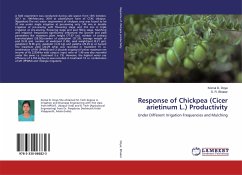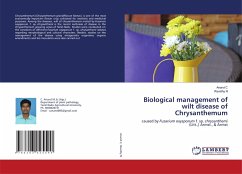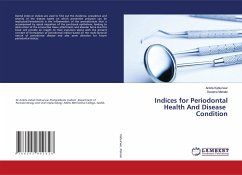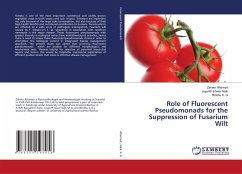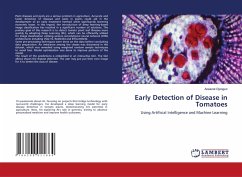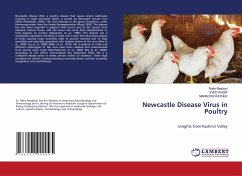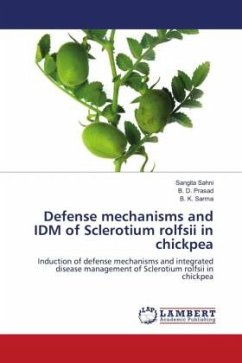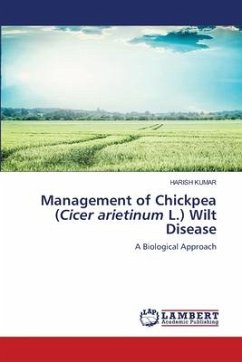
Management of Chickpea (Cicer arietinum L.) Wilt Disease
A Biological Approach
Versandkostenfrei!
Versandfertig in 6-10 Tagen
29,99 €
inkl. MwSt.

PAYBACK Punkte
15 °P sammeln!
India is the largest producer of chickpea accounting for 64% of global chickpea production but its production is adversely affected by several pathogens. Fusarium wilt (Fusarium oxysporum f.sp. ciceri) is very serious disease in chickpea crop. The present research as done to minimized the disease incidence by take Trichoderma viride, Trichoderma harzianum neem cake and carbendazim. Use of pesticides increases the health problems and decreases of soil fertility as well as increases the resistance the pathogens. The fungal antagonists and organic amendments lead. The positive role in increases t...
India is the largest producer of chickpea accounting for 64% of global chickpea production but its production is adversely affected by several pathogens. Fusarium wilt (Fusarium oxysporum f.sp. ciceri) is very serious disease in chickpea crop. The present research as done to minimized the disease incidence by take Trichoderma viride, Trichoderma harzianum neem cake and carbendazim. Use of pesticides increases the health problems and decreases of soil fertility as well as increases the resistance the pathogens. The fungal antagonists and organic amendments lead. The positive role in increases the soil fertility and decrease the health problems. So we conclude the antagonists Trichoderma viride, Trichoderma harzianum and organic amendments neem cake can be successfully exploited as a biological approach the management of soil borne disease particularly Fusarium wilt.



